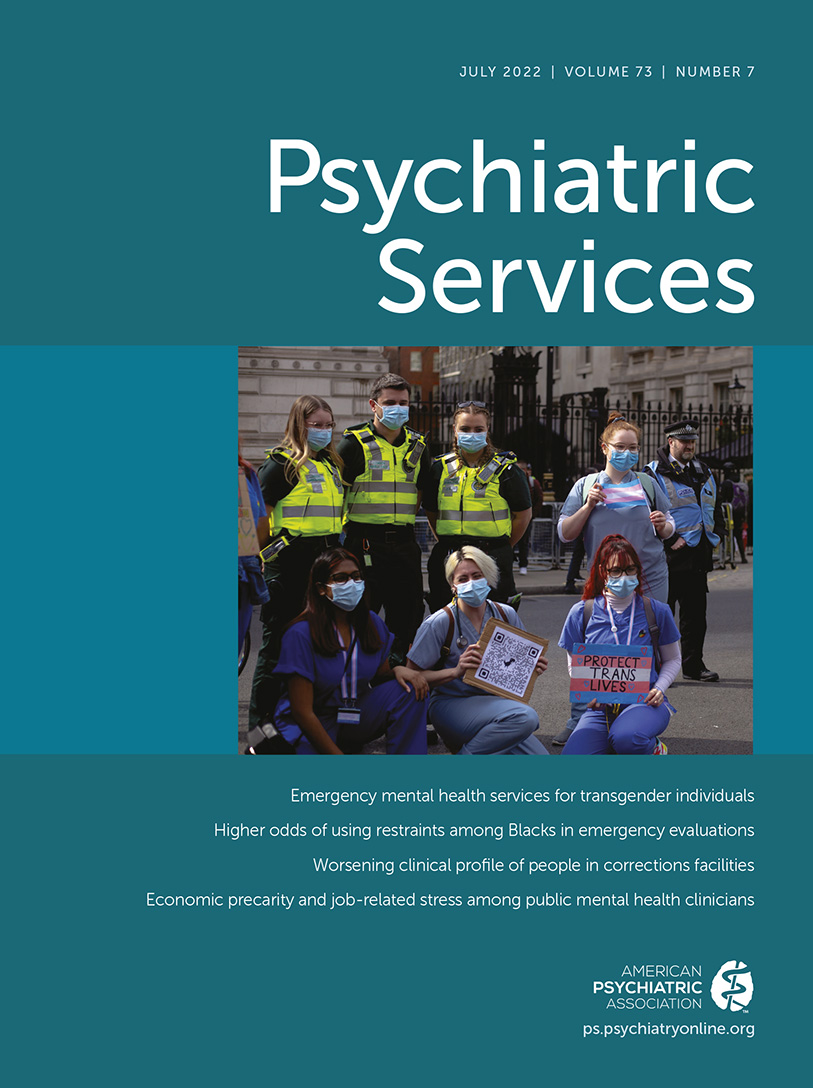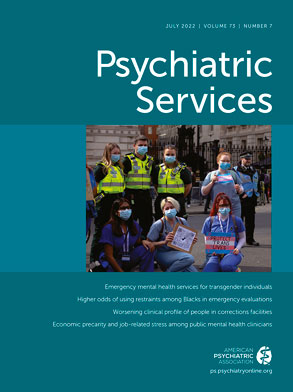This Editor’s Choice collection and others are available online in the Editor’s Choice section of ps.psychiatryonline.org.
Mental health service engagement has been the focus of extensive research. The concept of service (dis)engagement lacks a uniform definition and methods of measurement. It may encompass appointment attendance and nonattendance, the therapeutic alliance, and, most commonly, premature discontinuation of care. Factors associated with disengagement (e.g., demographic, clinical, and program related) have varied by study, including investigation of similar disorders and treatment models. Additional factors to consider are the quality and type of engagement. For example, not all research has conceptualized more engagement as better; indeed, some interventions have been designed to reduce in-person service use and, particularly, acute care use.
This collection examines research on service engagement, with a focus on patient, provider, and program factors influencing engagement and patient/provider perspectives. Included articles span various populations and mental health services. Although there is comparatively little literature on interventions targeting service engagement, digital tools demonstrate promise and are likely to be a growing research focus.
Service user and provider perspectives
Disengagement From Care: Perspectives of Individuals With Serious Mental Illness and of Service Providers
Smith TE, Easter A, Pollock M, et al.
Psychiatr Serv 2013; 64(8):770–775
Mental Health–Related Discrimination as a Predictor of Low Engagement With Mental Health Services
Clement S, Williams P, Farrelly S, et al.
Psychiatr Serv 2015; 66(2):171–176
A Qualitative Investigation of Engagement in Mental Health Services Among Black and Hispanic LGB Young Adults
Moore KL, Lopez L, Camacho D, et al.
Psychiatr Serv 2020; 71(6):555–561
Rates and predictors of engagement
Characteristics of Community Mental Health Clinics Associated With Treatment Engagement
Stein GL, Lee CSN, Shi P, et al.
Psychiatr Serv 2014; 65(8):1020–1025
Predicting Engagement With Mental Health Peer Specialist Services
Chinman M, McCarthy S, Mitchell-Miland C, et al.
Psychiatr Serv 2019; 70(4):333–336
Access to and Engagement in Substance Use Disorder Treatment Over Time
Liu J, Storfer-Isser A, Mark TL, et al.
Psychiatr Serv 2020; 71(7):722–725
Transitions in care
Psychiatric Inpatient Discharge Planning Practices and Attendance at Aftercare Appointments
Smith TE, Abraham M, Bolotnikova NV, et al.
Psychiatr Serv 2017; 68(1):92–95
Family Involvement in Psychiatric Hospitalizations: Associations With Discharge Planning and Prompt Follow-Up Care
Haselden M, Corbeil T, Tang F, et al.
Psychiatr Serv 2019; 70(10):860–866
A Qualitative Study of Barriers and Facilitators to Transitions From the Emergency Department to Outpatient Mental Health Care
Walker ER, Fukuda J, McMonigle M, et al.
Psychiatr Serv 2021; 72(11):1311–1319
Youths and families
Barriers to Service Utilization and Child Mental Health Treatment Attendance Among Poverty-Affected Families
Bornheimer LA, Acri MC, Gopalan G, et al.
Psychiatr Serv 2018; 69(10):1101–1104
Patterns of Youth Mental Health Service Use and Discontinuation: Population Data From Australia’s Headspace Model of Care
Seidler ZE, Rice SM, Dhillon HM, et al.
Psychiatr Serv 2020; 71(11):1104–1113
Early psychosis
Predictors of Early Discharge From Early Intervention Services for Psychosis in New York State
Mascayano F, van der Ven E, Martinez-Ales G, et al.
Psychiatr Serv 2020; 71(11):1151–1157
Disengagement From Early Intervention Services for Psychosis: A Systematic Review
Mascayano F, van der Ven E, Martinez-Ales G, et al.
Psychiatr Serv 2021; 72(1):49–60
Characteristics of Hispanics Referred to Coordinated Specialty Care for First-Episode Psychosis and Factors Associated With Enrollment
Friedman BR, Durán DK, Nestsiarovich A, et al.
Psychiatr Serv 2021; 72(11):1407–1414
Digital interventions to promote engagement
Use of a Web-Based Shared Decision-Making Program: Impact on Ongoing Treatment Engagement and Antipsychotic Adherence
Finnerty MT, Layman DM, Chen Q, et al.
Psychiatr Serv 2018; 69(12):1215–1221
Effect of Mobile Health on In-Person Service Use Among People With Serious Mental Illness
Ben-Zeev D, Buck B, Hallgren K, et al.
Psychiatr Serv 2019; 70(6):507–510
Other strategies and approaches to promote engagement
Enhancing Treatment Reengagement for Veterans With Serious Mental Illness: Evaluating the Effectiveness of SMI Re-Engage
Abraham KM, Mach J, Visnic S, et al.
Psychiatr Serv 2018; 69(8):887–895
Message Framing and Engagement in Specialty Mental Health Care: A Follow-up Analysis
Mavandadi S, Wright E, Klaus J, et al.
Psychiatr Serv 2018; 69(10):1109–1112
Efficacy of the Home-Based Mental Health Evaluation (HOME) Program for Engaging Patients in Care After Hospitalization
Matarazzo BB, Forster JE, Hostetter TA, Billera M, Adler G, Ganzini LK, et al.
Psychiatr Serv 2019; 70(12):1094–1100
Evaluation of Proactive Community Case Detection to Increase Help Seeking for Mental Health Care: A Pragmatic Randomized Controlled Trial
Jordans MJD, Luitel NP, Lund C, et al.
Psychiatr Serv 2020; 71(8):810–815

